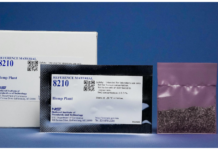Lesotho (pronounced “le-so-toe” or “le-sue-two”) is a landlocked kingdom surrounded by South Africa. Most people probably never heard of it until recently, as in 2017 it was the first African country to legalize medical marijuana. Owing to the pioneering regulations, over 300 days of sunshine annually, low humidity, pristine water, educated workforce, and more, the tiny nation has burst onto the scene as an optimal location for growing and exporting cannabis and a gateway to European markets.
Market Leaders Come Calling
These conditions underscored Canopy Growth Corp. (TSX: WEED)(NYSE: CGC) spending CDN$28.8 million in stock to acquire Daddy Cann Lesotho PTY Ltd., or Highlands as it is known, in May 2018. The prize for Canopy Growth was Highlands’ license to cultivate, manufacture, supply, hold, import, export and transport cannabis and its resin in Lesotho.
While Canopy scooped up Highlands, Halo Labs (OTCQX: AGEEF) (NEO: HALO) (Germany: A9KN), a cannabis extraction company that develops and manufactures cannabis oils and concentrates, was working with Bophelo Bioscience, the operator of one of the largest cannabis cultivation sites in Lesotho. Halo was operating the 5-hectare (~540,000 square feet) cultivation and production property and purchasing all the harvested crop in exchange for Bophelo taking a 20 percent stake in Halo and earning a royalty on cannabis sales.
This month, Halo upped the ante on its commitment to Lesotho, inking a non-binding letter of intent to acquire 100 percent of Bophelo. The LOI lays out the terms for which Halo will pay CDN$24.7 million (US$18.4 million) for Bophelo through the issuance of about 40.8 million shares of its common stock.
Land…and A Lot of It
While Bophelo’s 5-hectare plot is essentially double the size of other licensed facilities in Lesotho, it could widen exponentially in the future. As explained by Halo CEO Kiran Sidhu, the state has already given Bophelo preliminary approval to expand up to 200 hectares (21.5 million square feet) and has indicated they would consider granting permission for outdoor growing from 2019 onwards, following consultation with the International Narcotics Control Board.
Bophelo has the property locked in under a 20-year lease agreement with an option to renew for an additional 30 years.
Halo believes that on the 5-hectare plot they will be able to produce approximately 4.6 million grams of E.U. Good Manufacturing Practices (GMP)-grade cannabis concentrate per annum. Management estimates all-in production costs of no more than US$2 per gram for its concentrates, which it then expects to be able to market in Europe for US$10 per gram.
An Emerging Leader
The acquisition puts Halo Canna at the head of a transitory period for Lesotho where it evolves into a global cannabis hub. In fact, Halo has the distinction of being the first American company to make an investment into Lesotho.
At the same time, the company has been broadening its U.S. footprint, including commissioning a 15,520 square-foot licensed volatile & non-volatile processing facilities in Cathedral City, California, in January. That’s in addition to its flagship 12,000 square-foot manufacturing facility in Medford, Oregon and 8,000 square-foot processing facility in Las Vegas, Nevada that was put into operation last year.
Halo further supports revenues derived from its own products by serving as a contract manufacturer providing white label products for leading brands, such as Caliva, Nektar, ikanik farms and Falcon.
With the entry into the lucrative California markets, Halo estimates its annual revenue will rise from about $11 million in 2018 to $48 million in 2019. In the latest quarter, revenue was $8.7 million, positioning Halo 11th in the top 15 quarterly revenue producers for U.S.-based public companies that touch the cannabis plant.
The 302 percent surge in revenue ranked Halo third in growth, narrowly trailing Cresco Labs ($21.1 million, +313 percent) for second. Halo trades with a market capitalization of $85.2 million. Cresco’s currently is $479.2 million, according to data from OTC Markets Group.
The first-mover investment into Lesotho will help keep the momentum going for Halo by providing direct exposure to an African market estimated at US$37.3 billion (both illegal and legal markets). With South Africa approving private use and decriminalizing marijuana possession in 2018, the legal market in that country of 56.7 million people is already estimated to have reached $1.85 billion.
Furthermore, the implications for future sales overseas resonate loudly. “[The acquisition] will also give Halo Labs an international platform for our innovative products like the DabTabs™️ Dablets, the first ASTM C373-18 certified doseable cannabis product,” said Sidhu.
Halo Chairman G. Scott Paterson succinctly summarized the buyout of Bophelo, calling it “game changing” for the company while adding, “We are enthusiastic about the Lesotho opportunity and operating a scale cultivation and production facility for the international export of oil and concentrates. We expect a lift both to revenue and profit and are looking forward to delivering these financial results to our shareholders.”
304 percent increase in quarterly revenue. Acquisition of one of the large cannabis companies in Lesothos. A global hub. A lift to revenue and profit. Those are exactly the types of things that investors love to hear.
For More Information Please Visit: https://halocanna.com.









